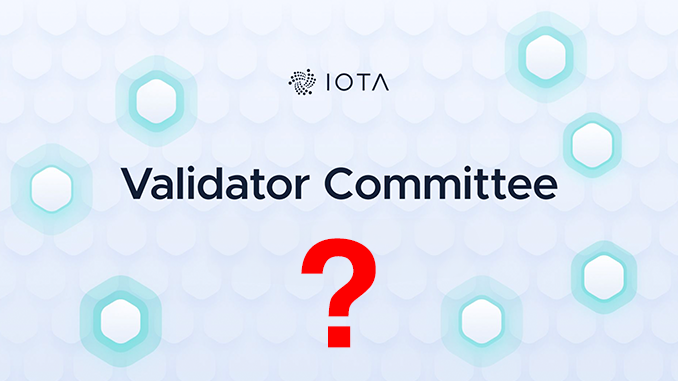
In September, IOTA announced the transition from a central coordinator to a ten-member committee as the final authority in the network. However, it is now clear that the IOTA Foundation still has the final say.
IOTA has a special place in the wide world of cryptocurrencies. Unlike Bitcoin and the like, IOTA’s network is not decentralized. Although IOTA has been planning a version 2.0 for years, in which there will no longer be a central instance, practical results are still pending. The crypto scene was therefore generally pleased when the IOTA Foundation announced a step towards decentralization in September. Instead of the central coordinator in the IOTA network, a ten-member committee was to take on the task of validating transactions. But now that this reform has been implemented with the IOTA update Stardust, the much-publicized committee has turned out to be a sham.
Originally, it was said that the IOTA Foundation was in talks with universities, institutions and companies to join the committee. Now the foundation has named the names of those who will take part. And the September announcement has been secretly changed. “Of the 10 validators, 5 instances will be filled by the IOTA Foundation and 5 by individual, external entities”, it now reads. In plain language: the IOTA Foundation continues to control a significant proportion of the nodes.
The other supposedly independent members of the committee are also not beyond all doubt. For example, there is Imperial College London, which received a million-euro donation from the IOTA Foundation in early 2022. There is Software AG, with which the IOTA Foundation has been cooperating closely on EU projects for some time. Also on board: the Swiss blockchain center UZH and the technology companies Akkodis and ETO Group. None of the institutions mentioned were chosen by the token holders, as is usual with other cryptocurrencies. Instead, they were all freely appointed by the IOTA Foundation.
Decentralization at IOTA: more appearance than reality
In this composition, the validator committee at IOTA is by no means the independent body that was promised. The situation is even more questionable with the IOTA side project Shimmer (SMR). There, too, a ten-seat committee decides on transactions – but the IOTA Foundation holds all ten seats. This means that the ironclad principle of Bitcoin and co. that a decentralized network with many different nodes manages itself technologically and is already shielded from the influence of individuals in the concept is not fulfilled. This creates trust. The situation is different with IOTA, where the foundation used its seat at the long lever in the fall to increase the number of tokens by 65% unexpectedly and single-handedly. This inflationary hammer caused head shaking in the crypto scene and price pressure on the markets. The IOTA management simply awarded itself 5% of all IOTA tokens without a vote. The total of 230 million IOTA tokens immediately went into the pockets of the so-called “contributors”. To this day, it is not clear who received how many tokens.
Conclusion: Can IOTA still be taken seriously?
Anyone who has been involved with IOTA for as long as we have is familiar with the foundation’s secrecy and big announcements that hide a lot of hot air. As an investor, you should not forget: the way IOTA and Shimmer are currently positioned, they are not cryptocurrencies in the true sense of the word. This is because the IOTA Foundation, headed by autocrat Dominik Schiener, rules as it pleases. A decentralized IOTA 2.0 would solve the problem, but this project, known as “Coordicide”, has been in the development loop for seven years and critics have long doubted its feasibility. In the meantime, many IOTA fanboys have also realized that there will be no Coordicide for IOTA in 2024.

Leave a Reply